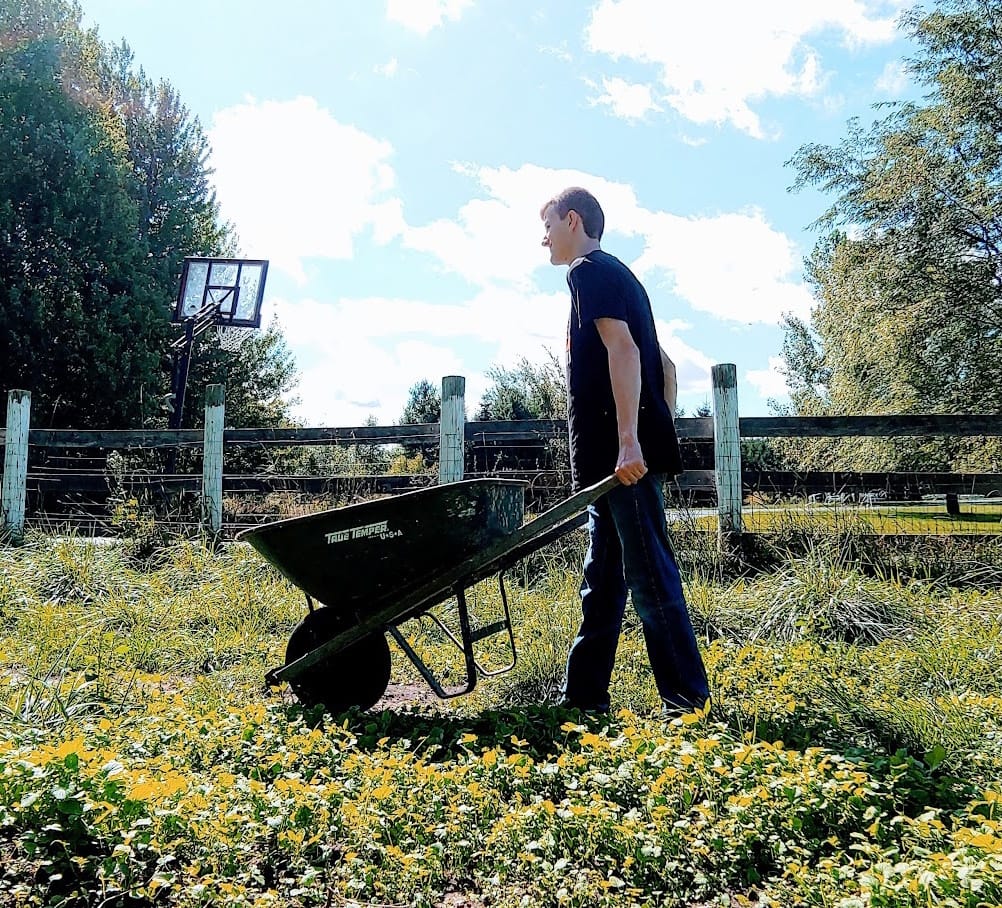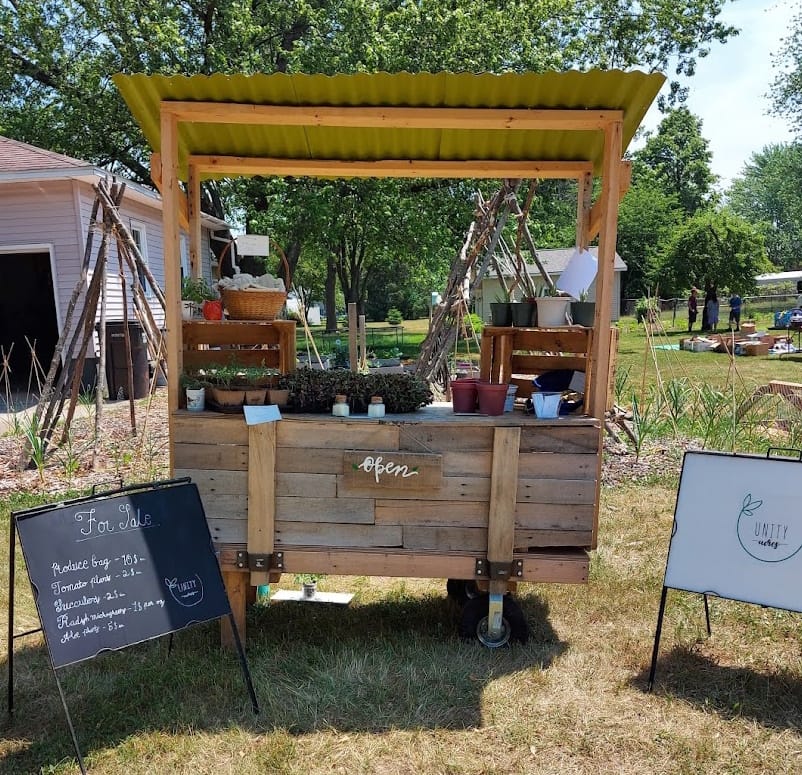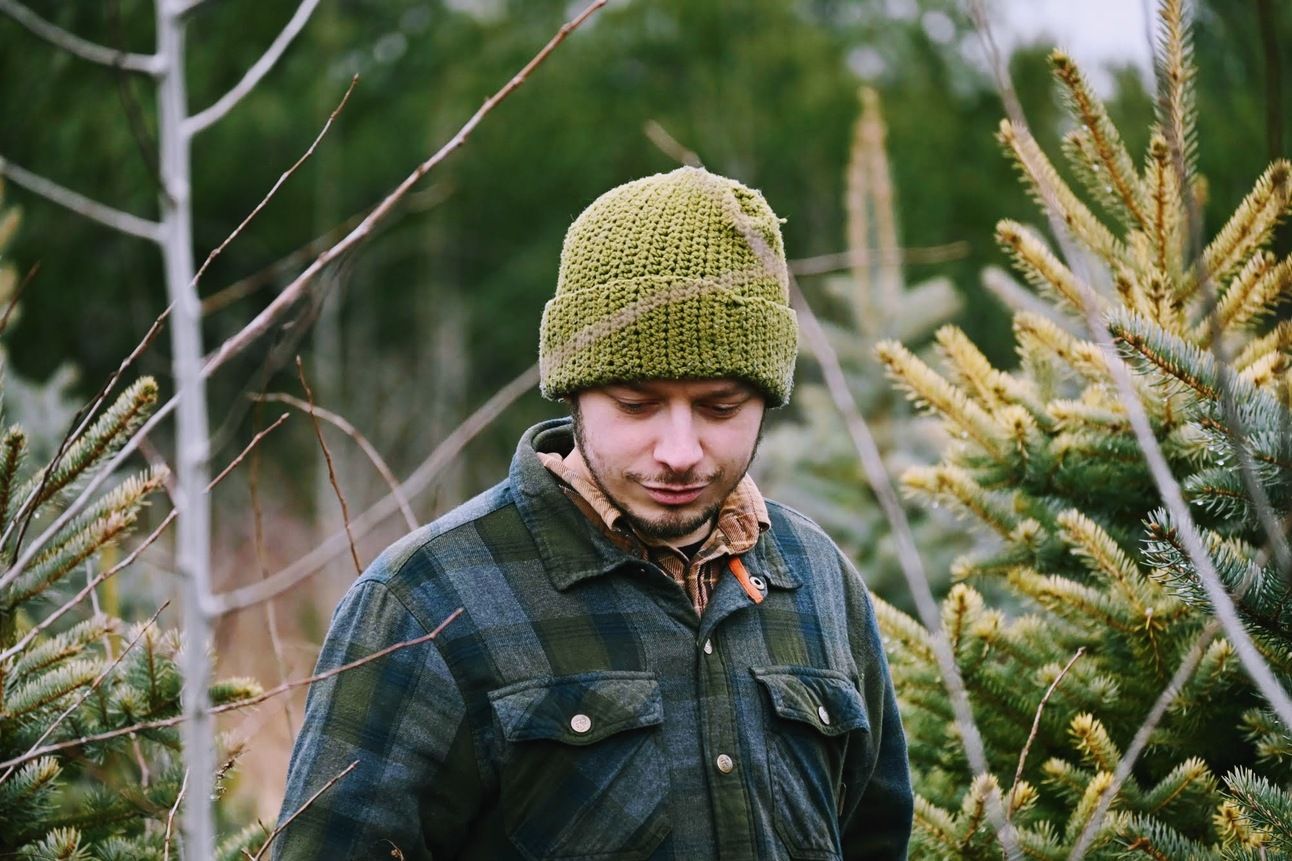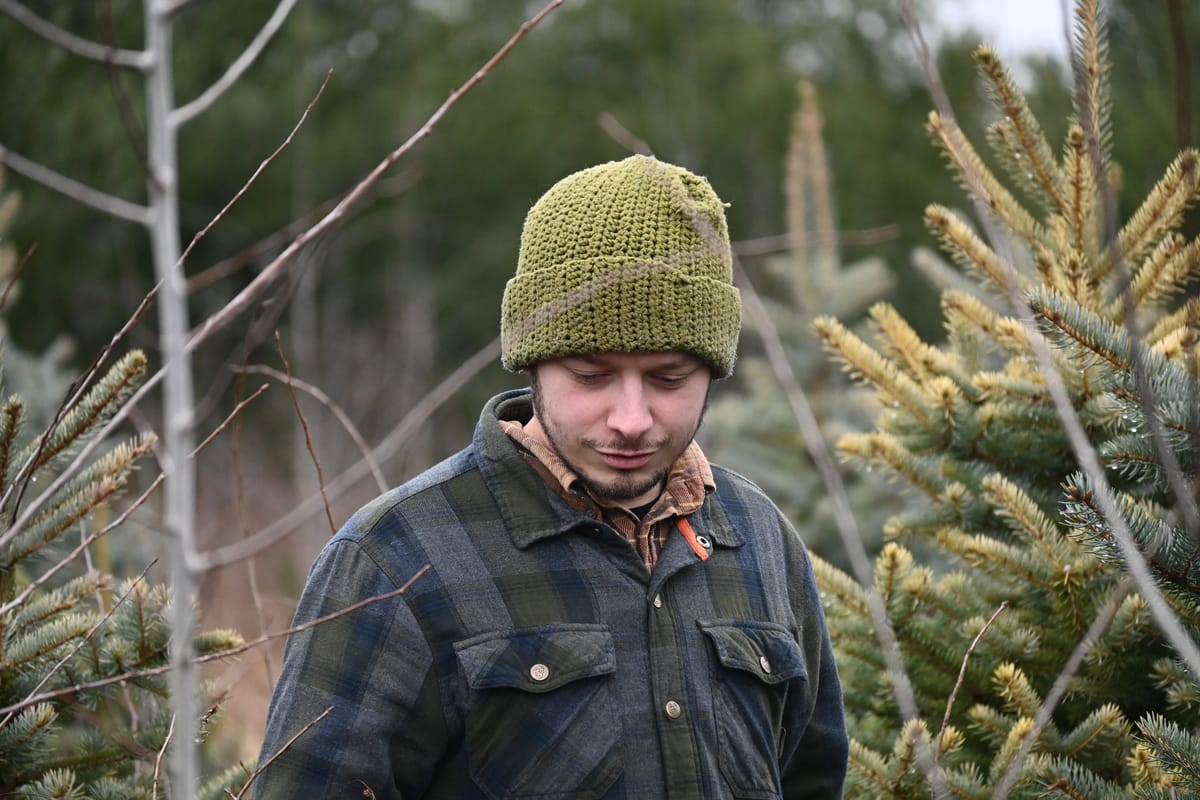
You might’ve heard me talk a lot about the idea of “resilience”. So what exactly do I mean by that?
Generally I define resilience as a state of being able to withstand hardship. There are a lot of skills and traits that can make you more resilient, but today I’ll focus purely on the physical skills.
These are useful whether you’re a homesteader in the middle of nowhere, or a young person just trying to get by in today’s economic depression! (I get it, it’s hard out there!)
Whatever the case, learning these skills should help you be more resistant to hardships in life!
I sorted this list into a few categories that I thought would be helpful and tried to capture things fairly broadly. Obviously, I can’t include every possible skill, but this should serve as a good baseline!

Wild rosehips
Food Production
First and foremost, humans need to eat. In depressions, wars, or unemployment putting food on the table (especially good food) is crucially important. Grocery stores in the U.S. generally only keep a 3-day supply of food (taking into account their regular number of customers). I don’t want to scare you; I simply want you to see how fragile that is and why it’s so important to have food resilience!
Here are some basic skills that will help you achieve this:
Growing Plants: Learn to start seeds, tend plants, and do regular garden care. This is vital in times of food-scarcity. Many people will need this skill, and few will have it. This is important to know even if you live primarily in an urban environment since there are many ways you can grow even when you have no yard!
Animal Husbandry: Learn to care for animals. Animals are one of the oldest sources of food in the world (Iranian nomads ate mostly dairy and wild herbs). This doesn’t necessarily mean you have to kill animals; some animals are more useful for the regular byproducts they supply than for meat.
Foraging: Learning to find your food in the wild ensures that even if you don’t have a garden or plot of land, you’ll still be able to eat. This adds a lot of resilience all on its own!
Herbalism: Learning how to use natural medicines is also vitally important since pharmaceutical drugs will not always be in supply. Natural medicines function best when used together and when paired with sleep and enough water! Always remember that.
Hunting/Trapping/Fishing: Learning to hunt, trap, and fish can also expand your sources of food. It sure isn’t for everyone, but it will save your life in winters or colder climates when food is scarce.
Grafting/Propagation: In the long-term, learning to graft and propagate will give you an edge. These skills can get you free plants when you would otherwise have to make do without!
Food Preparation
Second to obtaining food is knowing how to properly prepare it. It does you no good to forage a bunch of herbs if you have no idea how to consume them.
(Check out my article on eating clean and affordably: How Natural Eating Saves You Money)
Cooking: Cooking can be complicated, or it can be VERY easy. Keeping things simple is often faster and easier to learn, but of course adding a little complexity can often taste better. I also recommend learning to cook over a fire since that offers an even deeper level of resilience.
Baking: Unlike cooking, baking has more of a science to it. A good way to get started with baking is to practice with sourdough bread and to learn old-fashioned baking techniques.
Canning: While canning won’t always be an option, it helps to know how to preserve food for that long. This can go a LONG way toward helping you in time of scarcity! I recommend finding that one old lady who knows how to can. Set aside whatever ideological differences you may have, just learn a new skill from her and let her teach you something that might just save your life!
Fermentation: Fermentation is one of those skills that sounds way harder than it is. Fermentation can be easy and safe! I may write an article on wild fermentation, but yeasts are everywhere and so easy to use. I highly recommend learning this. When all other probiotic supplements aren’t around (or are too expensive) fermented foods will always perform better.
Drying & Dehydrating: Drying and dehydrating are a GREAT place to start with food preservation. You can dry with nothing but the air, and you don’t need a fancy dehydrator to get started. Some people even DIY their own solar dehydrators that don’t use electricity! Drying can help you keep food longer and reduce the need to always be buying food.
Root cellaring: Root cellars are the old-fashioned refrigerator. It’s a way of storing food in a cool dark place to preserve it for a long time without electricity. There are whole books on root cellars, but it doesn’t have to be large, expensive, or complicated!
Freezing techniques: This is one of the less-resilient skills in this group, particularly because it requires electricity, but it’s an easy way to start. Freezing meals and bulk foods is a great way to get introduced to food preservation for people who don’t have a lot of time or money.
No-Waste Meals: One of the biggest first steps in food preservation/preparation is learning to eat leftovers. It sounds simple but you’d be surprised at how few people actually eat leftovers in much of the Western world. If you make a large batch of soup with things you foraged or grew, then just reheat the rest over the next couple days you’ve given yourself several meals with only one day of cooking! My wife and I do this regularly. Additionally, learn to reuse parts of one meal to create another. Make baked potatoes one day, then the next fry them up with eggs and vegetables for example.

One of our early water collection systems
Off-Grid Skills
Here I am defining “off-grid skills” loosely. Most of the skills on this list could be considered “off-grid” skills, but I’m using it to mean skills that you need to set up off-grid systems for a homestead or community.
Off-Grid Power Systems: While there is great resilience in learning to live without electricity, off-grid power offers so many advantages in staying alive and being resilient. Learning to set up solar panels, generators, and hook up batteries can all be useful ways to build this skill.
Off-Grid Water Systems: Water is another fundamental human need. If you’re ever unable to get water from a local grid, learning to catch, store, treat, and manage water properly is vitally important. This is another skill that is not as hard to learn as it sounds! That said, also look into harnessing gray water and about natural water filtration.
Emergency Preparedness: Learning first-aid, self-defense, and how to help others in an extreme situation will also help you immensely with staying resilient in unstable times. There are many books and manuals on these types of things, I highly recommend getting a physical copy. As an adjacent skill, I also recommend learning basic veterinary skills. Animals get sick and die too!
Off-Grid Waste Systems: Little do people know, there are very effective ways of managing your waste off-grid! No, we didn’t always have sewage systems provided to us by local townships. Learning to properly compost human waste is not only a good way to dispose of it, but it also provides some very important nutrients to the soil. If that is uncomfortable for you to consider, remember that you might not always have a waste treatment center around!
Off-Grid Heating/Cooling: This can be as simple as learning about passive heating/cooling or learning to start a fire properly. This can also include learning how to set up geothermal systems, rocket mass heaters, rocket stoves, and learning how insulation works. This skill is another that can make or break your survival and comfort in a bad situation.

DIY Skills
There are probably hundreds of DIY skills that are helpful, but I’ve compiled a list of a few that I think are particularly valuable. These are skills that everyone should really have regardless of if you live in the middle of nowhere or a sprawling urban center! They will help you in life regardless:
Woodworking: Some very basic woodworking skills go a long way. You don’t have to be able to make a beautiful intricate wooden puzzle box, but you should know how to measure, cut, join, and finish wood. It’s an abundant resource and it is definitely worth using.
Plumbing: Knowing how to repair your own plumbing and the basics of how it works is also a skill I highly recommend you learn. If your plumbing breaks and you can’t get anyone out to fix it, you’re without water. Learn how to repair some basic things yourself or set up your water system with minimal plumbing (ideally both!)
Electrical: While some electrical work can be quite dangerous, knowing basic wiring and lighting can be very beneficial. Especially if you have solar panels and batteries! It is also worth mentioning that learning to live without electricity is important, but learning how to fix the system you do have can be very helpful.
Masonry: While less important than the others in my opinion, this can be a great skill to have for building things. Some basic skill with masonry can allow you to build sturdy structures that may even outlast you! Get some books on primitive masonry, learn to work with natural clay, learn to make a basic cement from scratch.
Weaving: When you can no longer get clothing, or you need more containers, weaving is the skill to know. I anticipate relatively few people (in the US at least) knowing how to do weaving at all and I could see this being a valuable skill. There are workshops you can go to where you can learn weaving as well as video tutorials online for both textile and basketry weaving. I recommend checking out the older indigenous techniques since many indigenous people were absolute masters of weaving!
Sewing: Learn to use a needle and thread. This is another very basic but pretty useful skill to have. You should know how to patch clothes and repair textiles to make them last longer!
Metal Working: This one may be harder to swing if you don’t already have a good setup dedicated to smithing, but it can be very valuable for making and repairing tools.
General Living
These skills are ones I had trouble putting in any one category but are still helpful to being a little more resilient. These could maybe be considered honorable mentions in some ways:
Soap Making: Making soap from scratch can be complex or very simple depending on how you choose to do it. For example, you could go the whole route of using goat milk and oils or you could simply soak horse chestnuts in water for a cleaning soap. Some plants (like the dreaded English Ivy) create good soaps for cleaning, but not as great for human skin. I plan to write an article all about soap plants sometime, but for now here are a few good plants to consider: soap nut, soapwort, yucca root, and horse chestnut.
Community Management: This is one that not a lot of people consider but that can also mean thriving or failing. Learn how to form communities (even just as simple as individual relationships with people) and learn to be diplomatic. Knowing how to handle a family, friend group, or whole village and where to direct efforts can be a massive advantage. Community will always outlast the lone wolf in threatening times. I hear a lot of people talk about finding your “tribe” and having third places. I may write an article on that concept as well soon.
Firewood Science: Believe it or not, there’s an art to cutting, drying, and storing firewood! If you don’t know how to do this, you could find yourself without warmth in a very cold season.
Navigation: Knowing how to read atlases, use compasses, and understand official nav maps is vital. Especially when you don’t have electricity and the internet.
Tool Care: This includes maintaining and using firearms, sharpening knives and axes, cleaning saws, repairing handles, and making your own tools from scratch if need be.
Tanning: I don’t consider this one absolutely essential, but it’s definitely good to know and can be useful. Especially as an item to barter and trade with. There are plenty of books on this subject as well!
Hand-washing Laundry/Dishes: There are definitely benefits to learning how to wash your dishes and laundry without modern conveniences. There are off-grid tools you can get for this exact purpose too which is great, I recommend getting a countertop washer for clothes since it doesn’t require electricity and washing dishes by hand in the sink or a tub. (I haven’t had a working dishwasher most of my life and I still don’t. It’s not as hard as it sounds!)
Tree Tapping: Learning to tap trees for sap can be very valuable as a trade item or just to have a sweetener in the house. Many people don’t realize that maple is not the only tree that can be tapped and boiled into syrup! I have seen people tap birch, walnut, butternut, boxelder, ironwood, hickory, and elm among others. Although they don’t have as high of a sugar content, they can still yield good sap. (As a fun fact, I’ve also boiled down apple cider into syrup and it actually produces more than maple sap does).

Our first produce stand at a friend’s house where we sold extra produce
Financial Stability
These last few are skills that will help more in the interim and while societies are still mostly functioning, but there are applications for the decline of modern civilizations as well:
Budgeting & financial planning: Learning how to use your money carefully and treat it like a finite resource is incredibly important. Since money is a big part of our modern lives, learning the basics of managing it can go a long way. I’m not saying anyone has to become an online money guru, but knowing how to live on less than you make or increase your income a little can mean the difference between being in constant crisis and having peace of mind.
Basic Investing: Again, not advocating for anyone to become a multimillionaire or to make money their personality but learn to put your money to better use than saving it. This could mean investing in tools or good quality items that you will have for your whole life. This could mean keeping your savings in a different kind of resource instead of a bank account (some people prefer crypto or gold, some people buy lumber etc) there are a lot of ways to do this. Just keep in mind the basic principle of buying something when it’s worthless and being able to utilize it when it’s worth a lot.
Starting a Business: Starting a business isn’t for everyone (and I personally don’t advocate for people becoming Amazon or Netflix) but this can be a huge means of financial stability for a person. Even a small side business (a plant nursery, a farm, a seed company, selling services on this list) and even doing it for barter or trade can help build a LOT of resilience for you and your family. Again, I’m not saying people should try to make a multimillion-dollar corporation, but I do think you should think about timeless businesses that can take financial strain off of you and will be practical for you and your community.
There’s a lot more I could say on this subject, but for now we’ll leave it at that.
Times will not always be convenient, and people will not always live in luxury.
Quick note: Thank you to everyone who have subscribed and shared the newsletter! As of early January, 2024, we have surpassed 120 subscribers!
I know this isn’t a big number, but to me it means a lot. I don’t get paid to do this so spreading the word is the biggest thing you can do to help me out and show your support!
Thanks,
Pete

You can read all previous publications here: The Naturalist


